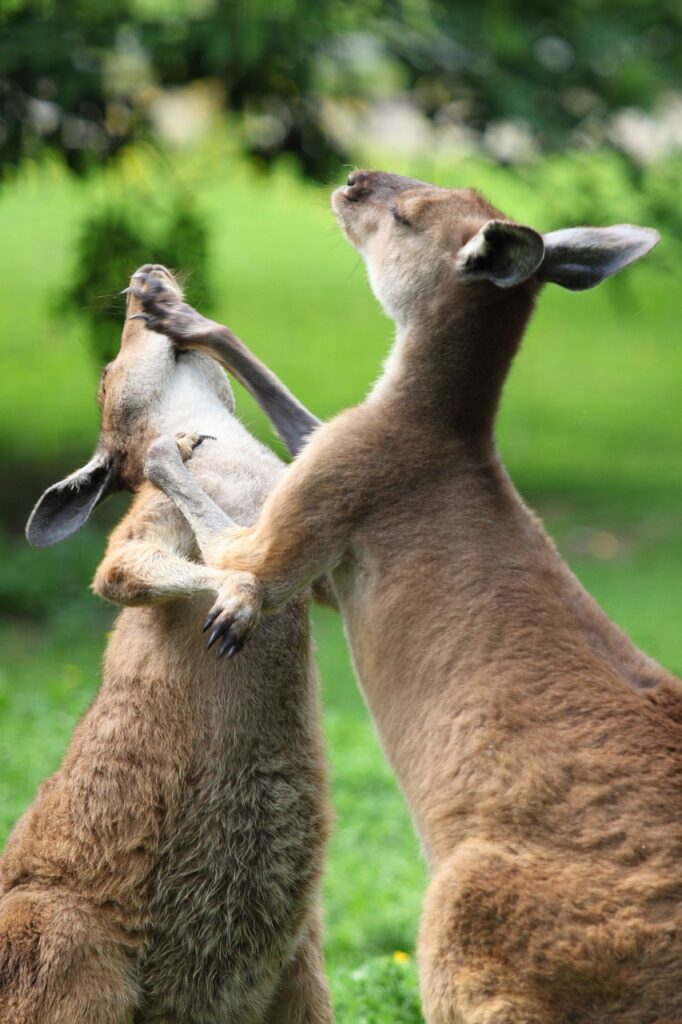Humanity is Back in Business
Branding X Humanity Intro

One of the things I learned from reading history books at an early age, was that our modern day view on so-called primitive peoples is narrow minded. Just because they lack the advancements attributed to our society, does not mean they are uncivilized or that their way of living is backward or less developed. In fact, I would go so far as to say that the way of living of tribes, past and present, is far more sustainable and even more advanced than ours. Each member of a tribe has a specific role and contributes to the collective through the application of their individual talents and skills. In return, they receive an equal share of the frutis of their collective labour. The collective and the individual coexist in harmony, thereby enabling them to survive, thrive and evolve. To me this is humanity at its optimum.
A fine example of this are the indigenous tribes that inhabited the west coast of Canada. During the long and cold winter months, these people barely left their large comfortable communal longhouses where they feasted on an abundance of food that they had stocked up on in the summer. They even had so much food, that they only ate the best salmon and fed what they regarded as the lesser kinds to the dogs. They were a close knit and thriving community that took care of its own and had plenty of spare time for relaxation, arts and crafts, literature, innovation and so on.

More than enough for everyone
The main difference between our society and theirs, is purpose. Their purpose amounted to making sure there was more than enough for everyone, while ours is getting ahead of each other, i.e. competition. Competition is borne of the fear of not having enough, which leads to greed and not wanting to share, which in turn leads to any number of individuals not having enough. A self-fulfilling prophecy if ever there was one. As I illustrated earlier, sharing is one of the rudiments of civilised society and ensures the survival of all its members. That means that the purpose of any organization should serve every individual in or linked to the organization.
What I see in our society, is the exact opposite. Many businesses, even small and medium-sized enterprises, are geared to creating a continual increase in profit that is divided among a select group of individuals, i.e. the owners and management of the business. By pursuing this objective, they lose sight of their initial purpose of providing direct value to their customers and clients, and indirect value to their employees, society and the environment. In other words, they fail to provide for the collective and the individuals of that collective.

Competition rears its ugly head
This becomes apparent when a private company goes public. In a private company the owners and management have at least some sort of bond with and commitment to the company, whereas the owners of a public company, i.e. the shareholders, have little interest in the purpose of the company, if any at all. Their interests are purely financial. They have little concern for the customers and employees and are solely intent on getting the best return on their investment. The purpose of the company has been exchanged for a new purpose as its owners have sold its proverbial soul to the devil in the form of the stock market. What it boils down to is that public companies are not really public. Now, there is irony for you.
Things go from bad to worse, when a public company takes on the megalomaniacal proportions of a multinational corporation. Yet again, competition rears its ugly head, only this time in the shape of unfair competition. This is how it works. The people who lead multinational corporations are extremely powerful individuals who can only attain such a position if they are emotionally numb and have no regard for anyone’s interests but their own. In order to achieve their personal objectives, they will go to great lengths, even if it means others may suffer indirectly from their actions.

A far cry from how an economy should function
An example of this is low-cost country sourcing. This is when a corporation sets up office in a developing country or a country with a weak economy. Because of their extremely large scale of operation and the low costs of labour and raw materials, they are able to produce and sell their products at a lower price than their competitors abroad and the country they are operating in. To add insult to injury, many governments aid the exploitation of their citizens by exempting these corporations from taxation. And otherwise there are countries that offer similar arrangements through legislative loopholes, in exchange for the corporation being headquartered there. Sometimes just a postal address will suffice.
In the end, the economy serves a select group of individuals linked to the corporation that is allowed to exploit whole regions or even the entire country. So, the economy of the low-cost country no longer serves the collective or its individuals, i.e. the people living in that country. By the way, I am not letting governments off the hook, as privatization of utilities and government services has exactly the same effect. The term ‘privatization’ is misleading because these organizations become public companies. This example is one of many that go to show that the dynamics of our present-day global economy are a far cry from how an economy should function.

Every one of us has the power to facilitate change
The word ‘economy’ comes from the Greek ‘oikonomía’, meaning ‘to manage a household’. In this context, a household is that of a country or the world. The management of our household consists of career politicians who operate under the guise of serving the people who elected them but who in fact act solely in their own interests. They emotionally blackmail the individual into believing she/he must sacrifice their individuality in order for the collective to survive, while they are actually sacrificing themselves for corrupt individuals. That is why it is called political correctness. Up until a few years ago, most of us have allowed ourselves to be played in this way, from our commitment to the collective. Unfortunately, we do not realize that those individuals telling us to commit to the collective by heeding their directives have no intention of committing themselves to the collective.
However, we do not depend on world leaders, politicians, governments, tech corporations or public figures for the creation of a humane world. I believe that each and every one of us has the power to facilitate change through making changes to our lives. These do not have to be ground-breaking, just small changes to the way we act and behave towards ourselves and other people. One of the changes is seeking out like-minded people to work with. By definition, these are people who uphold their integrity and make an effort to act in a humanitarian way. Very often, these people seek to reconnect with Nature and thereby with themselves at a deeper level. In any case, they live and work along the same lines as those of the tribal people I mentioned at the beginning of this post.

The collective and the individual coexist in harmony
From this new way of living, comes a new way of doing business. More and more small businesses, which I call humane businesses, operate in a more humanitarian way and most times in harmony with Nature as well. Springing up like mushrooms, they create a new economy and breathe new life into society. Incidentally, did you know that fungi, like mushrooms, purify, nourish and invigorate the soil so that new life may sprout from it?
The purpose of these humane businesses is to provide value in one way or another to the individual through their products, services and way of doing business. By the individual I mean their customers, clients, employees and anyone else these businesses interact with. In turn, the collective benefits from such individuals who are free, self-empowered and committed to serving not only themselves, but also the people around them and society as a whole. It is clear that humanity is back in business. And because of it, the collective and the individual are once again starting to coexist in harmony.
This post marks the beginning of a new series of blog posts, called Branding X Humanity. In the following posts – that will be much shorter than this one – I intend to highlight a different humane business and the way it brands itself. At the same time, I will create posts for LinkedIn and Instagram based on and hyperlinked to the blog posts.
Captivate your audience
Thank you for reading this post. I would love to know your thoughts and feelings on what I have written. So, please comment below or in an email to email@wimbeunderman.com and be sure to subscribe to my blog if you want to be notified of new posts. You can also connect with me on LinkedIn, Instagram or YouTube. And feel free to contact me if you want me to captivate your audience through powerful brand storytelling.
Wim Beunderman
Straight to the Heart

Images
‘Papua New Guinea’ by JulesR on Pixabay
‘Fruits’ by Pexels on Pixabay
‘Animal’ by PublicDomainPictures on Pixabay
‘Sri Lanka’ by Jürgen Scheffler on Pixabay
‘Hands’ by Shameersrk on Pixabay
‘Mushrooms’ by Adege on Pixabay

0 Comments